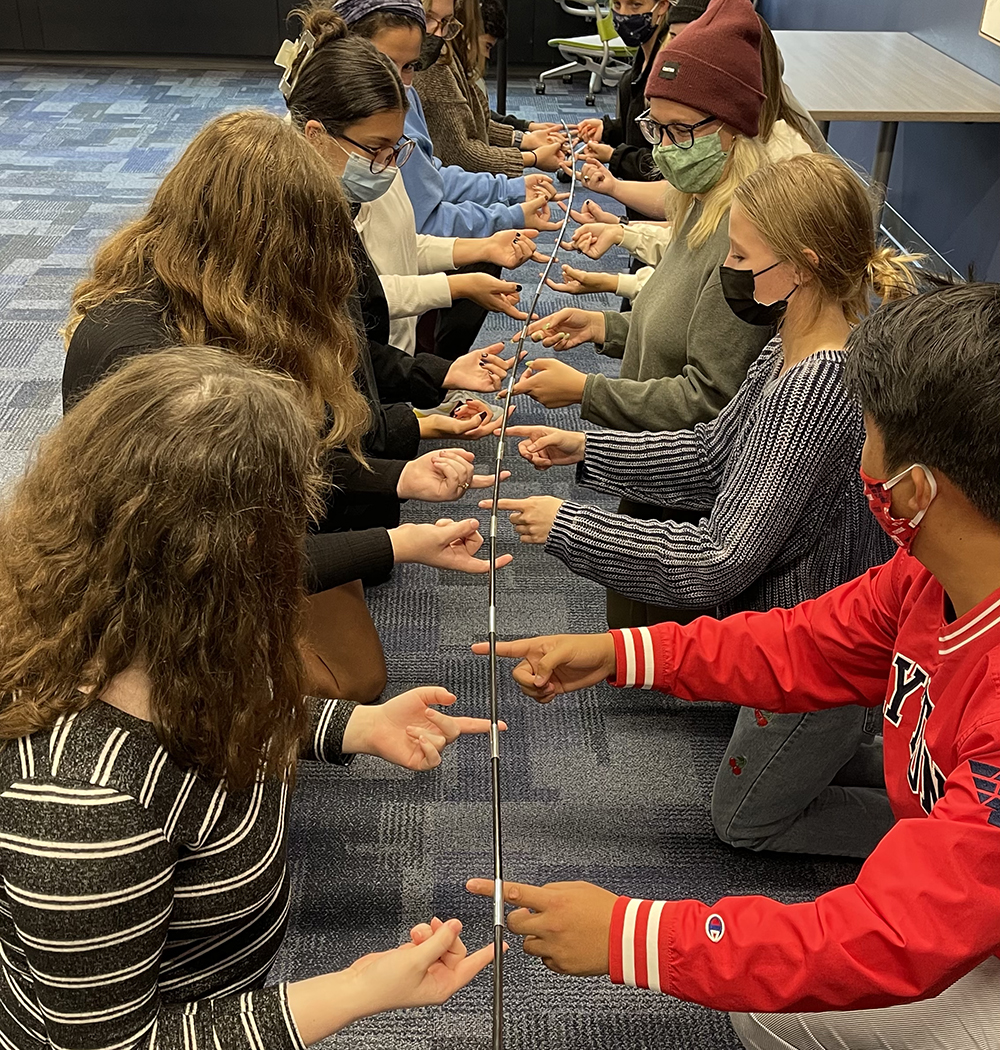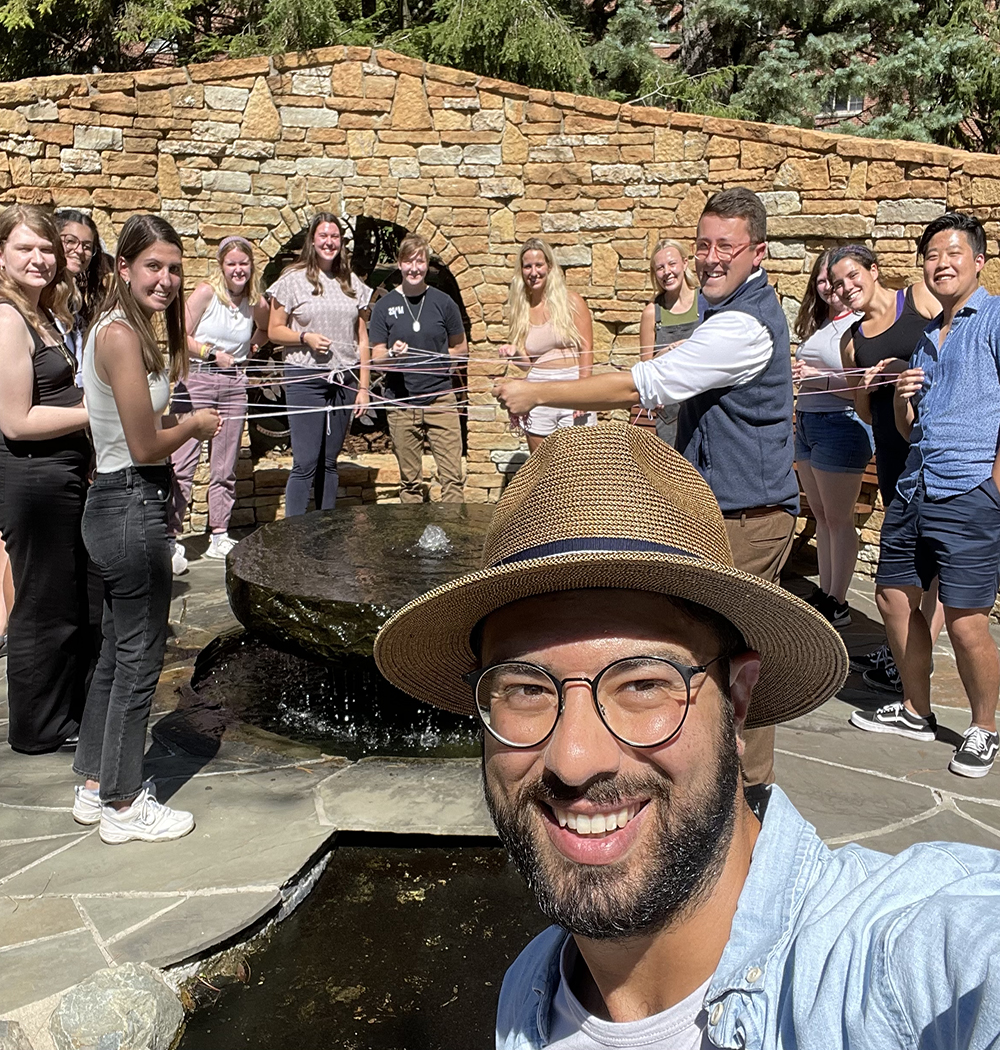Learning how to ‘live human rights’
Professor Youssef Farhat’s human rights capstone course is making students uncomfortable — in a good way.
University of Dayton is home to the nation’s first human rights undergraduate degree program, which began in 1998. The program’s pioneering spirit can be seen in the unusual way faculty member Youssef Farhat ’14 teaches his human rights capstone class, according to many faculty and students.
On the first day of class, Farhat asks students in the syllabus to “live human rights.” He said he wants students to go beyond the research of human rights studies and actually experience what it means to be human.
“The life of human rights is long. How do you live it through everyday life?” Farhat said.
A group from the Dayton Contemporary Dance Co. joined Farhat’s class in late September to “live the justice” of contemporary dance. Students also worked with UD’s theater department to study improvisation and how that skill allows people to look at life’s different perspectives.
“It's beyond just articulating the mission, doing the job and coming home. It's believing every single day ‘I'm surrounded by and mindful of these values,’” Farhat said.
Farhat brought in Dayton-based company Brixilated, started by alumnus Adam Mullins ’03, to discuss addiction issues. Brixilated holds classes that teach mindfulness and resilience through building with Legos. Later in the semester, students went to the Nutrition Food Lab on campus to learn about food disparities and how cooking can build community.
Human rights senior Anna Beebe is going through the capstone course this semester. She said Farhat’s teaching methods have introduced her to human rights conversations through dance, food, entrepreneurship and food, and the class activities have gotten her out of her comfort zone.
“Participating in activism in these spaces has made me uncomfortable but in the best way,” Beebe said. “In the human rights field, I am going to spend the rest of my career being uncomfortable, and this class has introduced me to the beauty in that.”
“I am going to spend the rest of my career being uncomfortable, and this class has introduced me to the beauty in that.”
During the pandemic, Farhat began a workout routine doing Crossfit, a popular high-intensity workout regimen which uses continuously varied movements. Farhat said this made him pay more attention to nontraditional teaching styles and inspired some of the activities for his class. He said Crossfit helped him focus on self-care and his own mental health, something he made sure he highlighted while coaching his students through the class.
“We never pay attention to the identity development of you. ‘Being a human rights practitioner,’ what does that mean and how do you find that journey on your own through vocation and through practice?” Farhat said. “I needed [my students] to focus on that because, for me, if they want to look forward in their career, they have to realize that right now.”
Farhat said a major motivator for teaching the class this way was the pandemic. After a year of distance learning, he recognized having a strict-structured class would not work. He said it is a lot of work to constantly accommodate schedule changes and student needs, but he wouldn’t want to run the class any other way.
“Professor Farhat has brought to life what it means to educate the whole person,” said Natalie Hudson, director of the human rights studies program. “He has done so in such an innovative and creative way taking full advantage of all the ways UD promotes human rights, dignity, equity, justice, empathy and solidarity across campus.”


